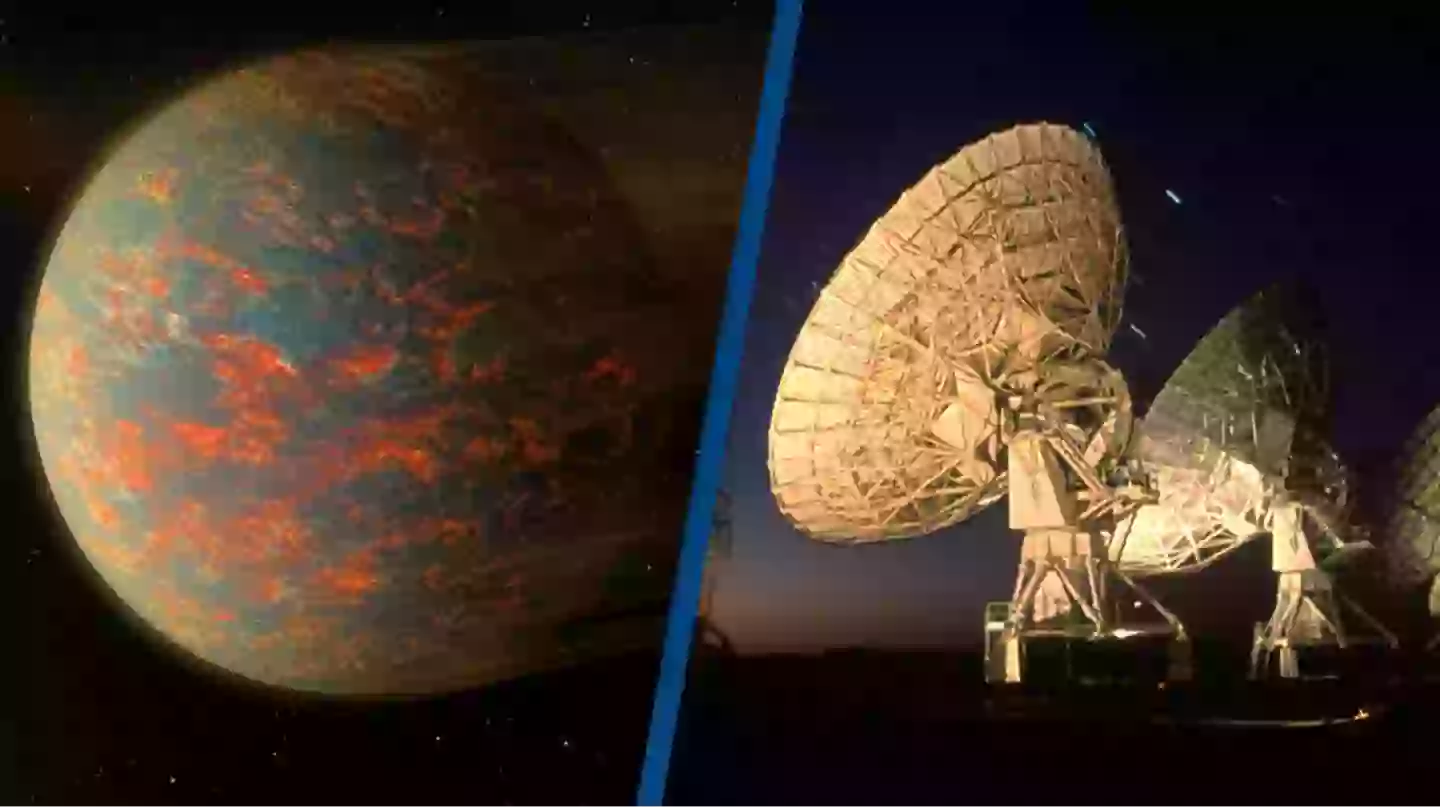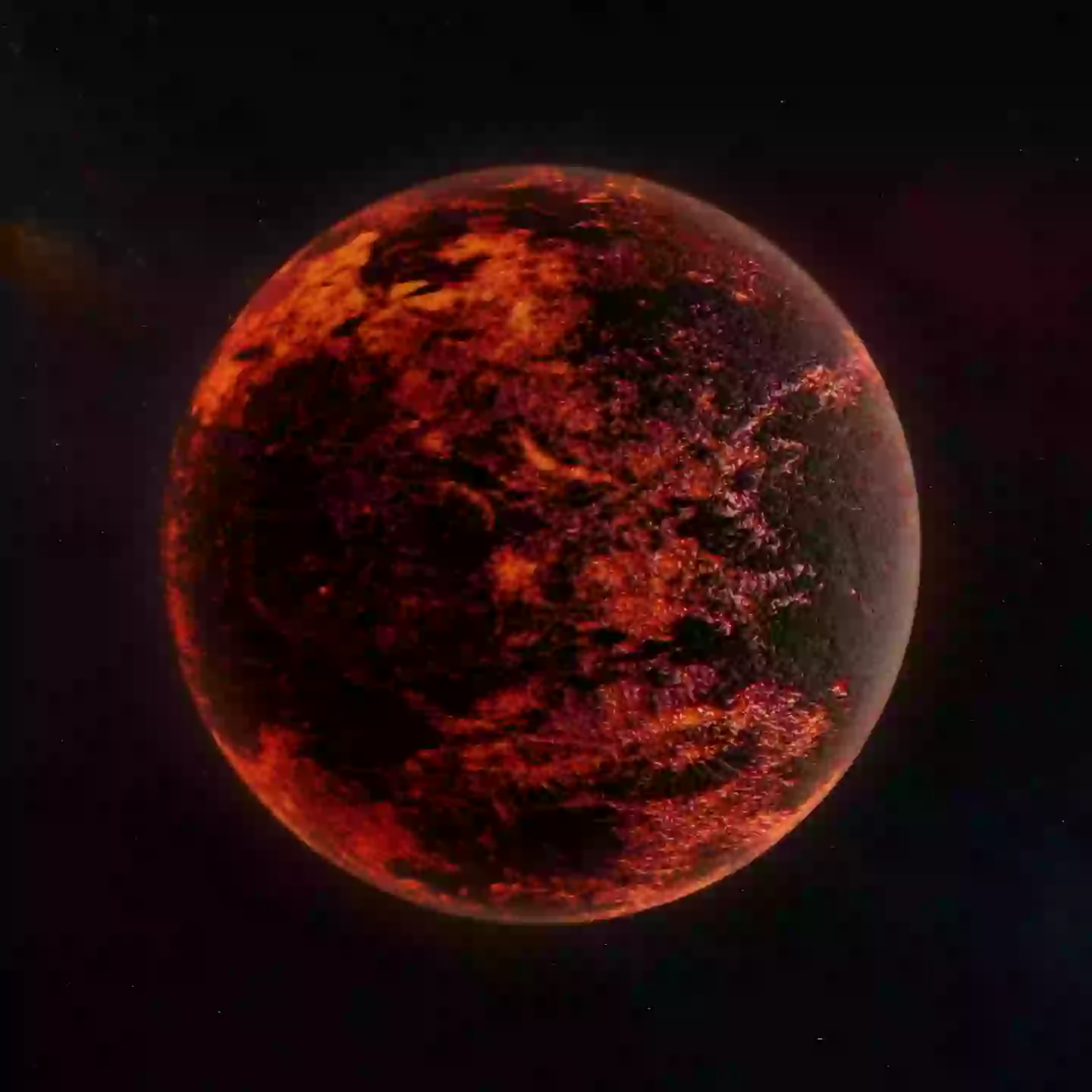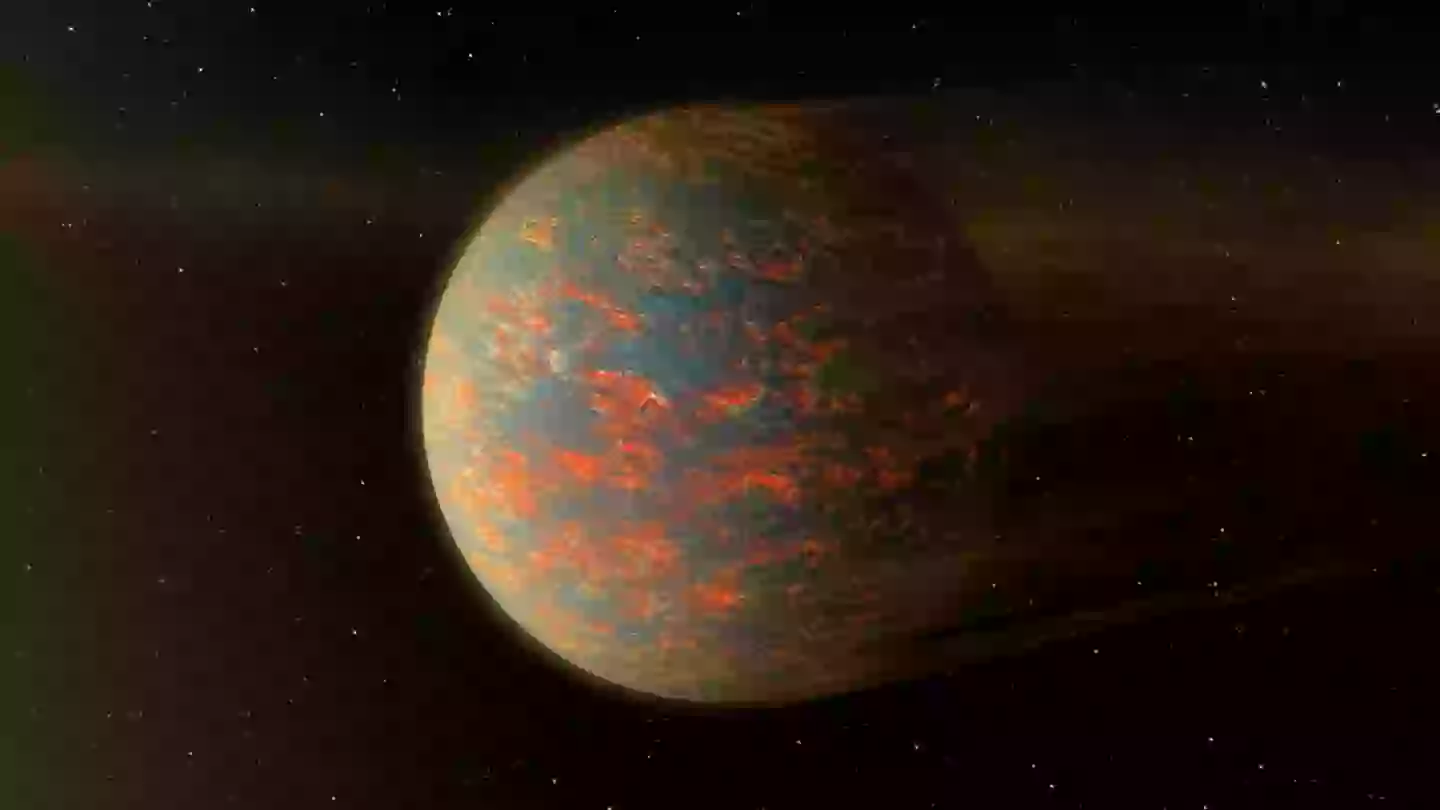
Scientists have figured out a possible explanation for why a hellish planet emits a mysterious signal.
The planet, which has the catchy name of 55 Cancri e, is so close to its star that it completes an entire orbit in just 17 hours.
Not only that, but some analysis suggests that the planet itself could be made out of diamond.
Advert
It's named after the star that it orbits, 55 Cancri, and was discovered in 2004. In space terms, it's not too far away either, being about 40 light years away, and has been christened a 'super earth'.
Nikku Madhusudhan of Yale University said of the planet: "This is our first glimpse of a rocky world with a fundamentally different chemistry from Earth.
"The surface of this planet is likely covered in graphite and diamond rather than water and granite."
Indeed, it's possible that as much as a third of the planet's mass is made up of solid diamond. That's a hell of a lot of carats.
Advert

But one interesting thing about 55 Cancri e, aside from it being made of diamonds, is the mysterious signal that it has been emitting for decades and which scientists have been unable to find an explanation for.
That is, it would seem, until now.
One theory which has been out forward is that the planet is continually shedding and regrowing its atmosphere.
Advert
The atmosphere is 'regrown' when volcanoes open up and spew hot gases over the surface of the planet which then form a new atmosphere.
But then the high temperatures caused by the planet's extremely close orbit will cause the atmosphere to be burnt off, leaving the planet once again 'bald' to space.
Then, the process repeats again, and again, according to a new paper.

Advert
At present this is just a hypothesis about the planet, but there is a way for scientists to put it to the test and see if it is indeed regrowing and shedding its atmosphere.
They could do this by continually measuring the temperature and pressure of the planet's atmosphere.
This would determine if the planet had a permanent atmosphere, or if it was continually shedding and regrowing it.
That process would also explain why the planet was sending out a continuous signal, which scientists have so far not been able to explain.
Advert
When the planet is 'bald', not visible light comes from it either, whereas when it has more atmosphere visible light and other signals start to once again be detected.
Diamonds might be forever, but the atmosphere of this planet certainly isn't.
Topics: News, World News, Science
